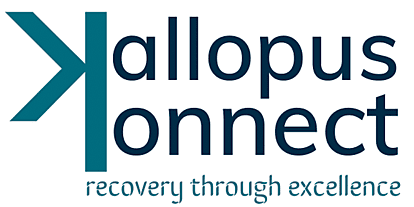When people hear the term speech therapy, they often think young children learning to pronounce sounds or expand their vocabulary. While helping children develop communication skills is a vital part of the field, it’s far from the whole story.
Speech therapy isn’t just for kids — it’s for anyone, at any age, who wants to improve how they communicate, use their voice, or swallow safely. From teens to adults to older adults, speech-language pathologists work with individuals facing a wide variety of challenges.
In this post, we’ll highlight who can benefit from speech therapy later in life, the types of issues addressed in adult therapy, and how it can lead to meaningful improvements in communication, confidence, and quality of life.
I am Gunashreya Raj, Speech Language Pathologist at Reviviscence Rehab and in this we will talk about Speech therapy for adults.
Adults and Speech Therapy: Who Can It Help?
Speech therapy deals with communication, cognition, voice, and swallowing — areas that affect people of all ages. Some common adult populations who may benefit from speech-language therapy include:
- Stroke survivors
- People with neurological conditions (e.g., Parkinson’s, Multiple Sclerosis )
- Adults with speech sound disorders or stuttering
- Transgender individuals seeking voice therapy
- People with strained or hoarse voice
- Adults with brain injuries or cognitive-communication disorders
- Older adults with dementia or memory concerns
What Can Speech Therapy Help With in Adults?
Speech-language pathologists (SLPs) do far more than help with pronunciation. Here's a breakdown of key areas adult therapy can support:
1. Speech & Articulation:
Some adults present with residual articulation disorders, such as persistent lisps or difficulty producing specific phonemes, which were not fully addressed during childhood. Others may develop acquired speech impairments later in life as a result of neurological conditions (e.g., stroke, traumatic brain injury, or degenerative diseases) or structural trauma affecting the speech mechanism.
2. Language & Communication:
Speech-language pathologists (SLPs) provide intervention for individuals experiencing expressive and/or receptive language deficits, word-finding difficulties (anomia), and impaired cognitive-linguistic functioning—often resulting from conditions such as cerebrovascular accidents (stroke), traumatic brain injuries (TBI), or progressive neurological disorders (e.g., dementia, Parkinson’s disease, or ALS).
3. Stuttering/Fluency:
Developmental stuttering may persist into adulthood and does not always resolve during childhood. Adults who stutter can benefit from fluency-enhancing strategies, desensitization techniques, and cognitive-behavioral approaches aimed at reducing speech-related tension, managing communication anxiety, and increasing functional communication confidence across various speaking contexts.
4. Voice Therapy:
Individuals with high vocal demands, such as educators, singers , and dubbing artist , are at increased risk for developing voice disorders characterized by vocal fatigue, dysphonia, or phonatory strain. Additionally, some individuals present with organic or neurogenic voice disorders—such as vocal fold nodules or spasmodic dysphonia—which often require specialized voice therapy provided by a speech-language pathologist.
Voice therapy is also essential for transgender individuals seeking a voice that better aligns with their gender identity — focusing on pitch, resonance, intonation, and communication style.
5. Swallowing Difficulties (Dysphagia):
Dysphagia is a common condition, particularly following cerebrovascular accidents (stroke), surgical interventions, or as a result of neurological disorders such as Parkinson’s disease, ALS, or multiple sclerosis. Speech-language pathologists (SLPs) conduct comprehensive swallowing evaluations and implement evidence-based dysphagia management strategies to enhance swallow safety, reduce the risk of aspiration, and improve overall mealtime efficiency and comfort.
6. Cognitive-Communication Therapy:
This refers to cognitive-communication skills, including working memory, sustained and selective attention, executive functions such as organization, planning, and problem-solving. Intervention in these areas is particularly beneficial following acquired brain injuries (e.g., traumatic brain injury or stroke), in the context of neurodegenerative conditions (e.g., dementia), or for individuals experiencing mild cognitive impairment or other cognitive-linguistic deficits
Why Adult Speech Therapy Matters
Communication is key to independence, connection, and quality of life. When it’s disrupted — whether by injury, illness, or something you’ve always struggled with — it can affect your confidence, career, relationships, and health.
Speech-language therapy can facilitate the recovery of impaired functions, the development of compensatory strategies, and, in some cases, the restoration of vocal abilities. Through targeted intervention, adults can experience significant improvements in their communication and quality of life, including:
- Successful reintegration into the workforce
- Enhanced participation and effectiveness in social and professional communication
- Improved self-advocacy and assertiveness in expressing needs
- Reduction of communication-related anxiety and increased confidence in public speaking
Final Thoughts: Speech Therapy is for people with all ages:
Speech therapy isn’t just about sounding “perfect” — it’s about being understood, expressing yourself, and connecting with others.
Whether you're recovering from a stroke, managing Parkinson’s, navigating gender transition, or just want to speak more clearly — speech therapy can help.
If someone in your family or someone you know struggles with any of this and confused about what to do then contact Reviviscence Rehab for Quality support and guidance.
West Tambaram, Perungalathur:
14, Sriram Nagar, Old Perungalathur,
Call: 09940400943
Padur, OMR,
96, Veeranam Road,
Birndavan Phase-I,
Call: 09940400943





